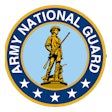Last Sunday, Jon Fenlon, Daniel Langdon and Rick Brown, ages 26, 36 and 65, all collapsed and died while running a half-marathon in Detroit. What made these deaths unusual was that they all happened within 16 minutes of each other during the last two miles of the 13.1-mile race. While the autopsies are still pending, the deaths were most likely caused by heart failure. Add these deaths to the list of fatalities during recent endurance events (half-marathons claimed two lives in San Jose, Calif., earlier this month and another in Virginia Beach, Va., in September), and it's enough to make even avowed couch potatoes break a sweat.
But after you weed through the hysteria about the increased risk of death associated with participating in such endurance events, the benefits of training and participation still outweigh the risks - if you don't have an underlying medical condition. Minneapolis cardiologist Kevin Harris presented a study this year at the American College of Cardiology's 58th Annual Scientific Session showing the death rate for marathons was 0.8 per 100,000 participants.
 runners
runners
Roughly 9,000 runners were registered for Detroit's half-marathon, while another 4,500 ran in the full marathon - both figures representing participation increases from a year ago. As participation increases, so does the number of deaths. It's purely statistics. The more cars on the road, the more accidents. And speaking of car accidents, you're more likely to die in a car crash than from running a marathon. According to the National Safety Council, the one-year odds of dying in a car accident are about one in 6,500.
The media should be more alarmed from deaths caused by smoking, overeating and being sedentary. According to the U.S. National Center on Health Statistics, being overweight or physically inactive each account for one out of every 10 deaths in America. That said, participants in these events still need to accept some personal responsibility. Running a marathon or even a half-marathon requires adequate training and preparation. I've been a runner most of my adult life and a triathlete for 12 years, but it took me more than five years to work up to a marathon and eventually triathlon and Ironman events. While some coaches may disagree, I just don't think you can train your body to go that distance in less than a year.
Race organizers still need to be vigilant about providing adequate aid stations and medical support, but in these times, they also have to make sure participants understand the risks and sign the appropriate waivers. As for screening would-be participants further, AB asked Kris Hinrichs, race director of Milwaukee's Lakefront Marathon, if endurance-race participation had run amok after a man with a pre-existing heart condition died during the 2007 Chicago Marathon. "I hate to say that," Hinrichs, herself a participant in nearly 70 races, told senior editor Paul Steinbach, "because 15 years ago, I maybe wouldn't have been welcome at a marathon."
If the news of another running death is freaking you out, I'd suggest you turn off the TV, shut down your computer and go for a run to clear your mind. You'll feel much better.
































